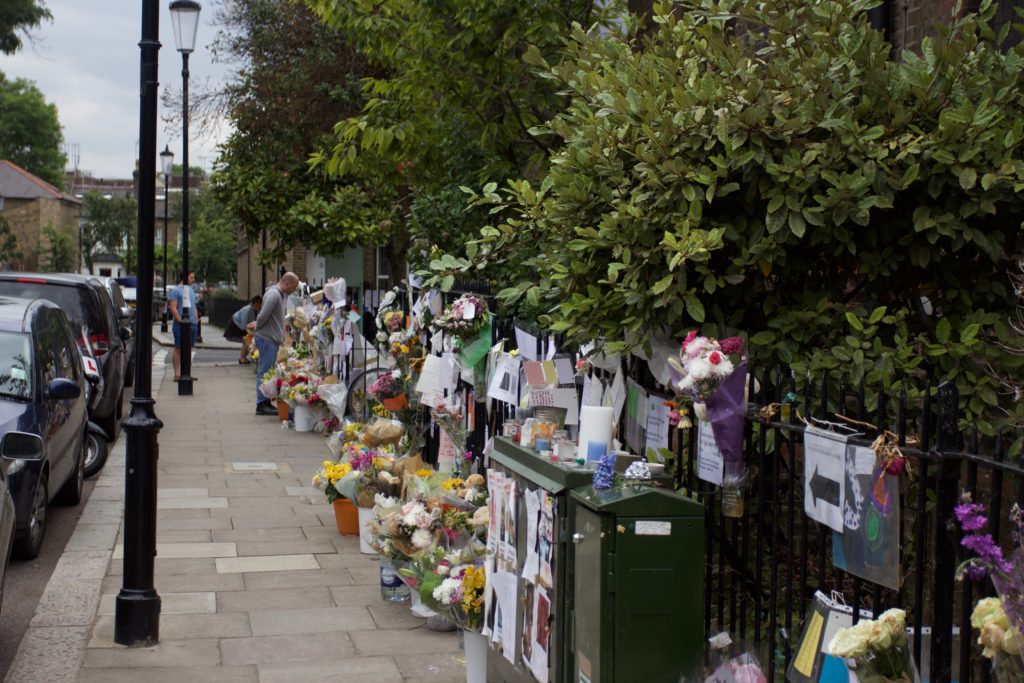The fifth anniversary of the Grenfell Tower fire was marked appropriately in many ways, with tender acknowledgements of wounds that will never heal and stern reminders about the leisurely pace at which dangerous cladding is being replaced. Yet it was also blighted by more of the trite politicking and media misrepresentations indulged in by far too many since the very day the fire took place.
It is abysmal – albeit all too predictable – that some continue to seek to undermine the credibility of Martin Moore-Bick, the former judge leading the inquiry into the fire who is widely recognised as the most accomplished commercial law expert in the country. Moore-Bick’s failing in the eyes of those effectively preparing the ground for grandstanding cries of “betrayal” whatever the inquiry concludes, is not his intellect, knowledge or dedication to his task but the fact that he’s a posh bloke who is white.
This, it is claimed, means he’s incapable of feeling sufficient empathy with the fire’s surviving victims, which in turn renders him unsuitable for the precision task of comprehending and assessing the mountains of contracts and other documents from which defining reasons Grenfell happened are being pieced together. Driving this prejudice is an assertion that the conditions that enabled the fire to spread with such terrifying ease would not have existed had the residents of Grenfell been more affluent and primarily white.
That is a very large claim. Can it be substantiated? In a fifth anniversary speech at Westminster Abbey, part-reproduced by the Guardian, solicitor Imran Khan, who represents some of the survivors, declared that “the race, religion, disability status and social class of the residents of the tower determined their destiny” and that this is “the obvious truth”.
It is reasonable for Khan and others who share his stance to ask if institutional discrimination played a part in a range of decisions that were made about the allocations of flats and the tower’s refurbishment, and to want the inquiry to seek answers. But the strength of that case is not enhanced by the fact that hundreds of housing blocks in the country that had Grenfell-type cladding fitted before the fire were for private purchase or rent, rather than for social rent. And it is just as reasonable to ask if such agitation is stirring distressing and unwarranted anxieties among survivors about the inquiry’s work.
Jeremy Corbyn currently holds the prize for the most gratuitously inane remark about Grenfell, blithely pronouncing, without offering a shred of evidence, that those who died did so “for the simple reason that they were poor”. We might expect prominent lawyers, trained to deal with dispassion in matters of fact, to eschew such emotive showboating.
Khan also conferred legitimacy – as have countless journalists and others since the day of the fire – on a blog post published in 2016 by the Grenfell Action Group – a “group” essentially of two people, one of them a tower resident, who vehemently opposed pretty much anything and everything the local council ever did, including building a school next to the tower.
The author of the blog post has been often hailed as a wronged prophet in the desert whose prescient warnings went unheeded. Yet nowhere in that blog post, or anywhere else on the group’s website, is the danger of flammable cladding mentioned. It might make “a good story” to claim that the concerns of “the Grenfell community” about the refurbishment went ignored, but the words of the fabled blog post do not substantiate it.
If a disaster like Grenfell is to be avoided in future, the facts about how such a terrible event could ever happen need to be established and published, unvarnished and unspun. Those that have already emerged speak pretty clearly for themselves and the inquiry seems certain to unearth more. Populism and prejudice do nothing to assist that vital work.
On London is a small but influential website which strives to provide more of the kind of journalism the capital city needs. Become a supporter for £5 a month or £50 a year and receive an action-packed weekly newsletter and free entry to online events. Details here.
